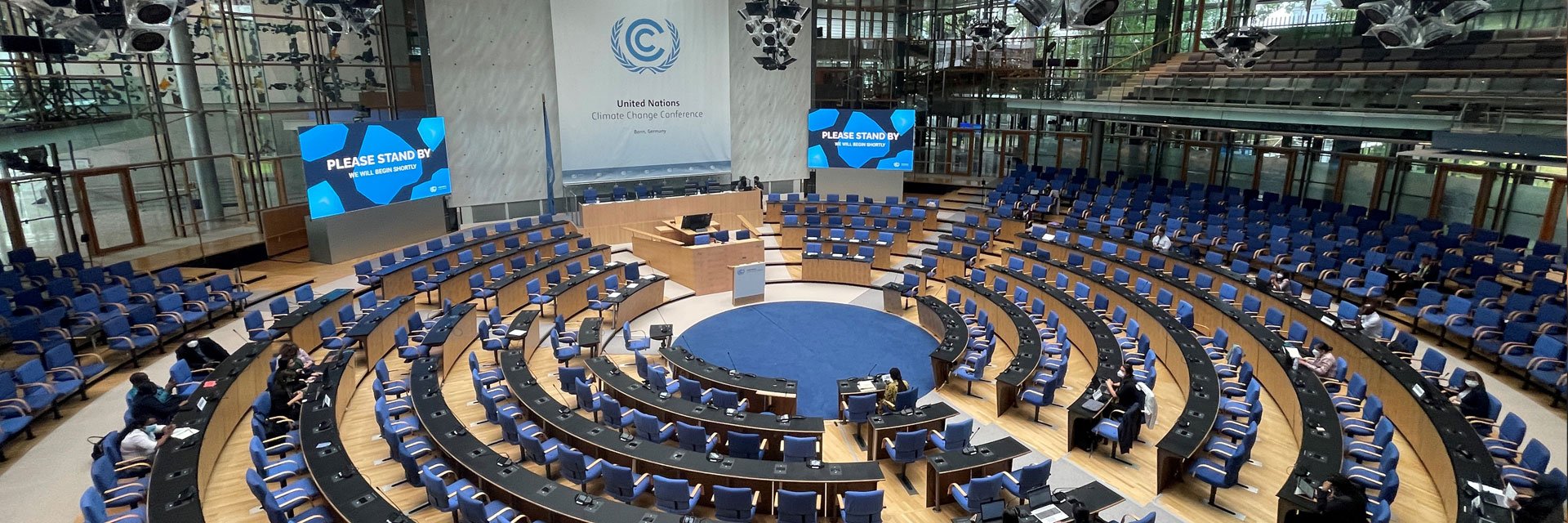
Climate negotiations
Climate change is a common concern of humankind, and international cooperation is fundamental for tackling it. In 1992 the world’s countries agreed on the United Nations Framework on Climate Change, UNFCCC, also called the Climate Convention. Today, it has near-universal membership. Every year the countries meet to form necessary decisions to reach the goal of the Climate Convention.
Turning climate goals into ambitious implementation
The ultimate objective of the Climate Convention is to stabilise greenhouse gas concentrations at a level that prevents dangerous anthropogenic interference with the climate system. The Climate Convention forms the basis for international cooperation in the efforts to build resilience to climate change, curb greenhouse gas emissions, and provide the necessary finance to vulnerable countries that are most affected by climate change.
Conference of the Parties, COP
Each year the UNFCCC gathers countries in global climate summits, also called Conference of the Parties, COP. On these meetings, the parties negotiate to solve various issues under the Climate Convention. Agreed rules and decisions are then implemented by the countries’ national governments. Each COP has a specific number and is hosted by different countries.
Sweden participates with a delegation led by the Ministry of Climate and Enterprise. Under the UNFCCC Sweden negotiates together with the other European member states as EU.
Several experts from the Swedish EPA participate in the negotiations as part of the Swedish delegation to the UNFCCC. Our experts mainly work on issues that concern:
- Mitigation
- Communication and public access to information
- Gender
- Climate change
- Transparency
- Climate reporting.
Our representatives lead the work of EU expert groups in mitigation and gender, and the Swedish EPA is also the national focal point for gender equality and climate change.
The Paris agreement, a historical landmark
At COP21 in Paris, parties to the UNFCCC reached a historical landmark by deciding on the Paris agreement. It builds upon the Convention with the central aim to strengthen the global response to the threat of climate change by:
- keeping a global temperature rise this century well below 2 degrees Celsius above pre-industrial levels, and pursuing efforts to limit the temperature increase even further to 1.5 degrees Celsius
- increasing countries’ abilities to deal with the impacts of climate change
- mobilising support to developing country parties
- making finance flows consistent with a low GHG emissions and climate-resilient pathway.
- ensuring consistent increase in ambition and encouraging all countries to do as much as they can, given their national circumstances.
Since 2015, the main purpose of the negotiations has been to agree on detailed rules to operationalise the Paris agreement, but the last few years focus has gradually shifted to implementation and ramping up ambition.
Sweden advocates an ambitious implementation of the Paris Agreement. The Swedish EPA contributes in several different ways to achieve these goals. Among other things, this means that we provide:
- data and knowledge to follow up nationally determined climate objectives and policies
- suggestion and evaluation of policy measures to reduce greenhouse gas emissions in Sweden
- international support to developing countries, for example in bilateral and multilateral cooperation.